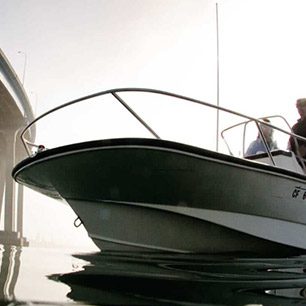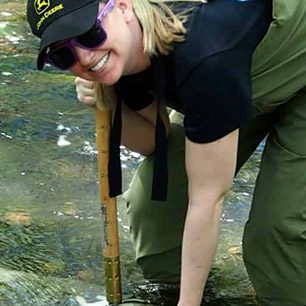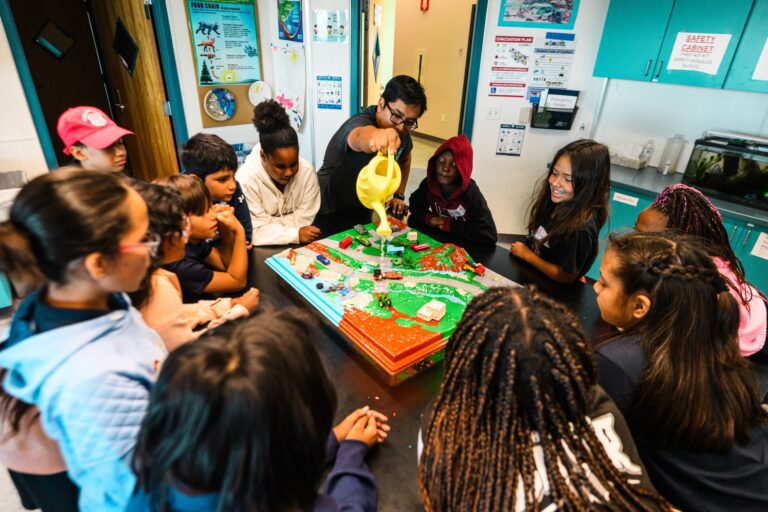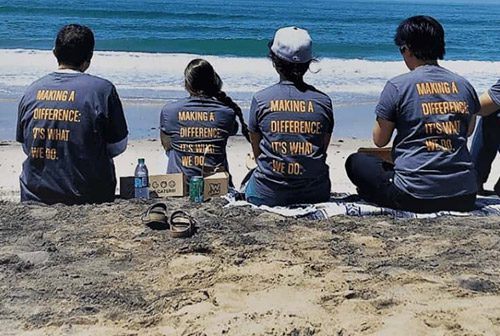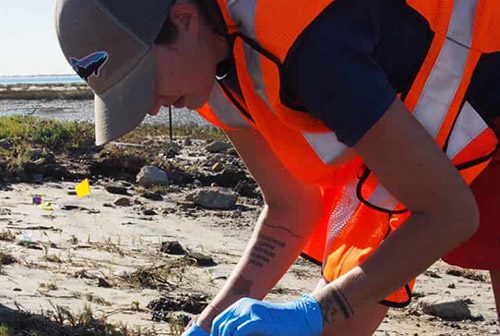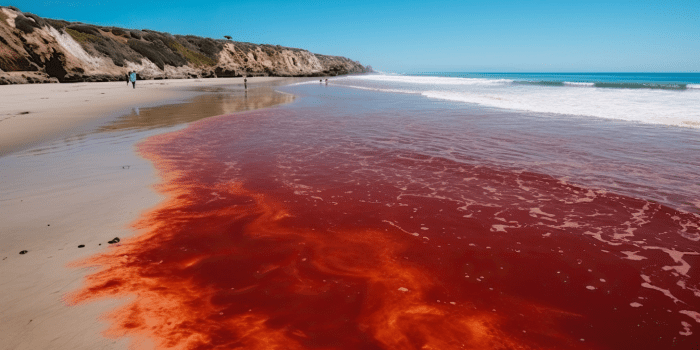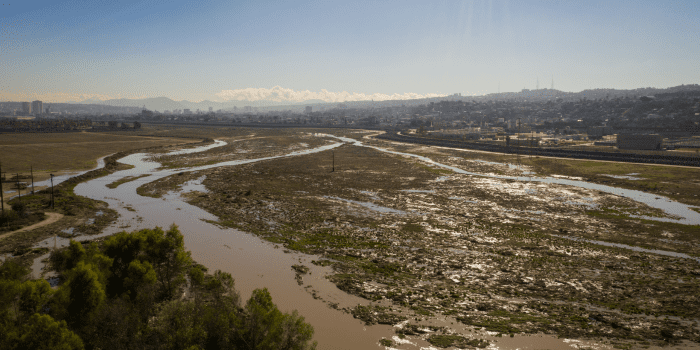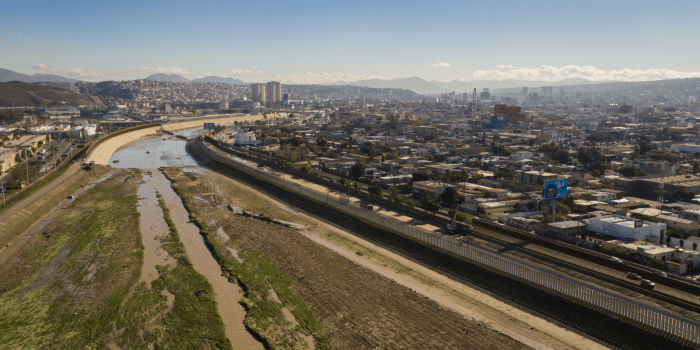Coastkeeper and advocacy
Part of the important work we do here at San Diego Coastkeeper is ensuring the individuals and entities responsible for protecting public and environmental health are doing their jobs to safeguard our waters, our communities, and our environment. That is true during times of relative tranquility, and it remains true in times of crisis like the own we are now facing with COVID-19. Pollutants don’t decide to go easy on the environment or stop sickening communities when decision-maker attention is understandably elsewhere. A significant part of Coastkeeper’s role in San Diego is ensuring that our waters and our communities are prioritized when government decisions are being made that impact public and environmental health.
Rarely – if ever – is this work glamorous. Rather than spending our time along the rivers, streams, and coastlines that inspire our work, our days are given to researching, writing, meeting, and working tirelessly to convince decision-makers and elected officials of the importance of protecting San Diego’s fundamental right to clean water, safe communities, and a healthy environment. Among our other duties, we regularly check calendars and agendas for City Council meetings and physically show up to comment on issues of importance to us and to you. When we say we are the voice for San Diego’s waters, we mean it. Speaking our opinions during council meetings is one of the ways we continue to influence the future of our city and move our region toward prioritizing health, sustainability, and resilience. It’s your support that enables us to show up to City Council meetings – which are usually held in the middle of a weekday when few members of the working public have the ability to attend – on your behalf. We are your voice when you can’t be there to speak your mind. It’s a role and a responsibility we take very seriously.
Advocacy and you
At this point, you might be wondering how shelter-in-place rules have been impacting City Council meetings and other decision-making processes. While the ability to attend meetings of any kind has been strained by the shelter-in-place rules, the ways in which the council is adapting to meet the challenge of virtual gatherings has actually, and possibly inadvertently, made it easier than ever before to have your voice heard before City leaders. Rather than you having to take time during a weekday to head downtown, attempt to park, find the council chamber, fill our a speaker’s form, wait for your agenda item to come up, and then muster all your public speaking chops to deliver an impassioned speech in under three minutes, the City of San Diego and other local and regional governments are now allowing community members – including you – to voice their opinions, concerns, and priorities via written messages submitted through a simple online form. Those comments are then read into the official government record before the council, to be considered by our leaders in their decisions. Your voice matters, and especially so at the local level. Incredibly, it has never been easier to speak up than it is now.
The Situation with stormwater
You may be surprised to learn that in the City of San Diego alone, work conducted by the stormwater department to protect our waters and wildlife, and safeguard communities against flooding, sinkholes, erosion, and waterborne illness is critically underfunded – with a funding gap of nearly $1 billion over the next 5 years alone.[1] If this doesn’t shock you, it should. The stormwater department is responsible for huge swaths of environmental and public health outcomes, but the mayor’s newly released budget calls for additional large cuts to this department due to a decrease in tax revenue during the COVID-19 pandemic. If not managed with the utmost care, these cuts will further stress an already underfunded department, and have the potential to even more deeply erode protections for our waters, communities, and neighbors.
Where the sh*t hits the stream
Numerous tests of City and City-adjacent stormwater discharges into local waters show the persistent presence of human fecal contamination, including raw sewage, hepatitis, norovirus, adenovirus, and other severely harmful pathogens in our waters. While we do not yet know to what degree, if any, raw sewage can carry and transmit COVID-19 through raw sewage contamination and contact, we do know other pathogens and viruses are ubiquitous in our local storm and flood waters (like those of the past few weeks during recent and record-breaking rainfalls) and continue to threaten the health and safety of the public. Not that there’s ever a good time to disregard the importance of protecting public health by carefully managing pollutants and pathogens in our waters, but this certainly is not one.
Answering the call of Stormwater advocacy
At 6:00 pm on April 30 and May 11, City of San Diego Councilmembers have scheduled public meetings to hear concerns of the community about the budget for the fiscal year starting this July. The time to make your voice heard is now. By telling our elected officials that you value the work of the stormwater department and you are relying on them to protect our waters and our health, you are helping ensure San Diego doesn’t backslide into dangerous territory.
How to comment on stormwater funding (or anything) from your couch
- Draft your message. Feel free to pull from the talking points below. Keep it to 200 words or fewer. Be concise, precise, and personal.
- Click here to access the agendas for upcoming meetings. Council meetings are held every Tuesday. Agendas may not be posted or updated until 48-24 hours before the meeting date, so if you don’t see an agenda yet, check back.
- Locate the item number of your topic on the agenda. You’ll need this when you submit your comment.
- Pull up the online comment form here. Fill out your information, select the meeting date, choose “City Council Comment,” and enter the item number from the agenda. Then paste or write your comment into the box.
- Hit submit. Do this all by 4:00 pm the day before the meeting. Bask in the warm glow of civic engagement. Know that even when life is unpredictable, you are powerful.
- If you are so inclined, the day of the meeting, pull up the CityTV live stream and watch the meeting. When your comment is read into the record, give yourself a well-earned pat on the back.
EXAMPLE talking points
- With an estimated $1 billion funding shortfall over the next five years for the City’s clean water work, I urge the Council and Mayor to ensure cuts to the stormwater department are limited and the essential work they are doing to protect our waters and our community health are given your support.
- Regular testing shows pathogens present in our waterways and most of our waters are heavily polluted. By further cutting funding during this crisis we severely limit the City’s ability to address these existing threats in a time of crisis. Please prioritize securing additional funding and ensuring fewer cuts are made to the stormwater department budget.
- As a swimmer/surfer/fisher/parent/water user, I want to feel safe when I am enjoying the ocean. I look forward to being able to recreate again once beaches and parks open again, and I want to make sure I’m not risking a serious infection to do so. Please protect clean water and public health by supporting stormwater management.
[1] https://www.sandiego.gov/sites/default/files/20_03_iba_review_of_the_fy_2021-2025_five-year_capital_infrastructure_planning_outlook_revised.pdf

